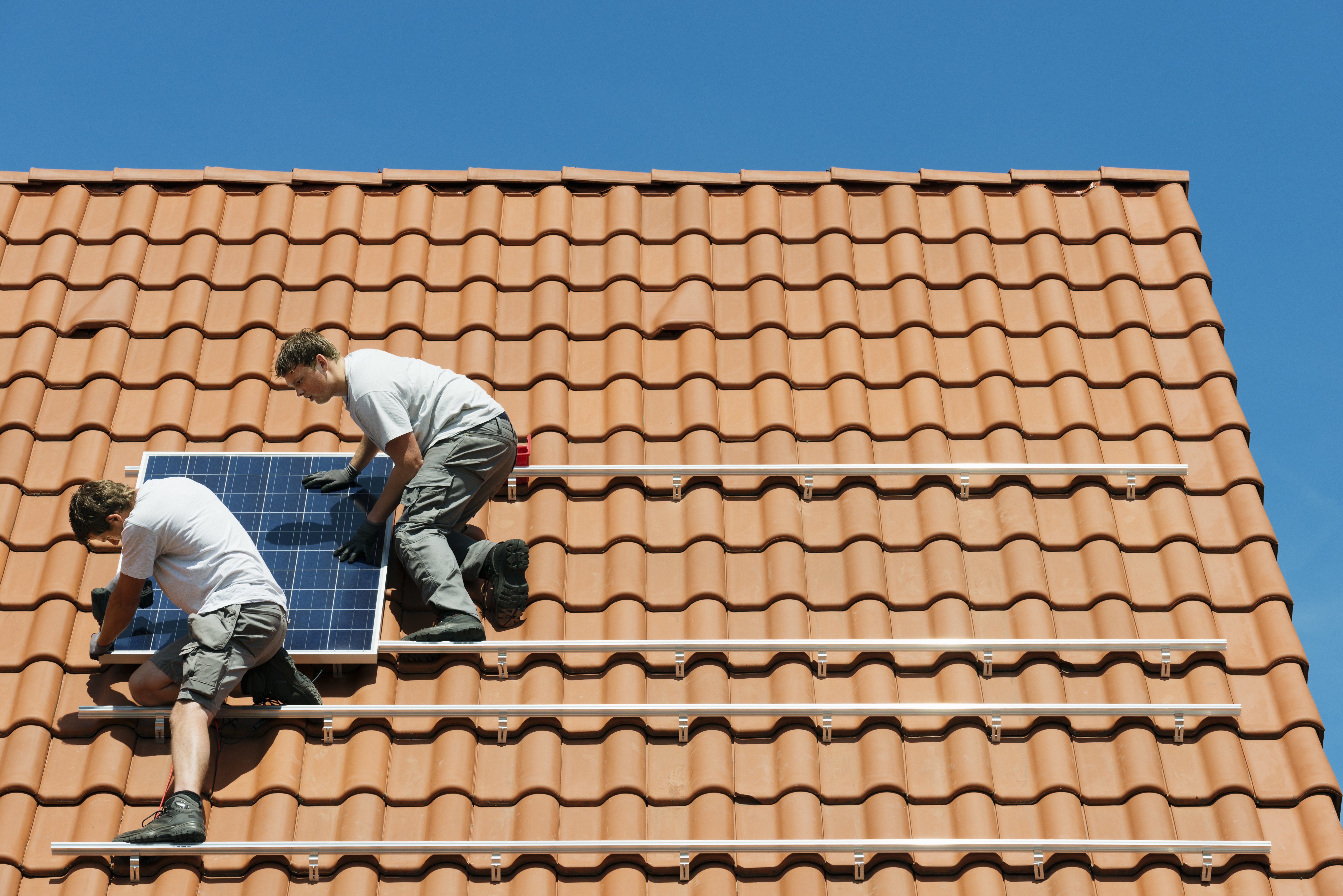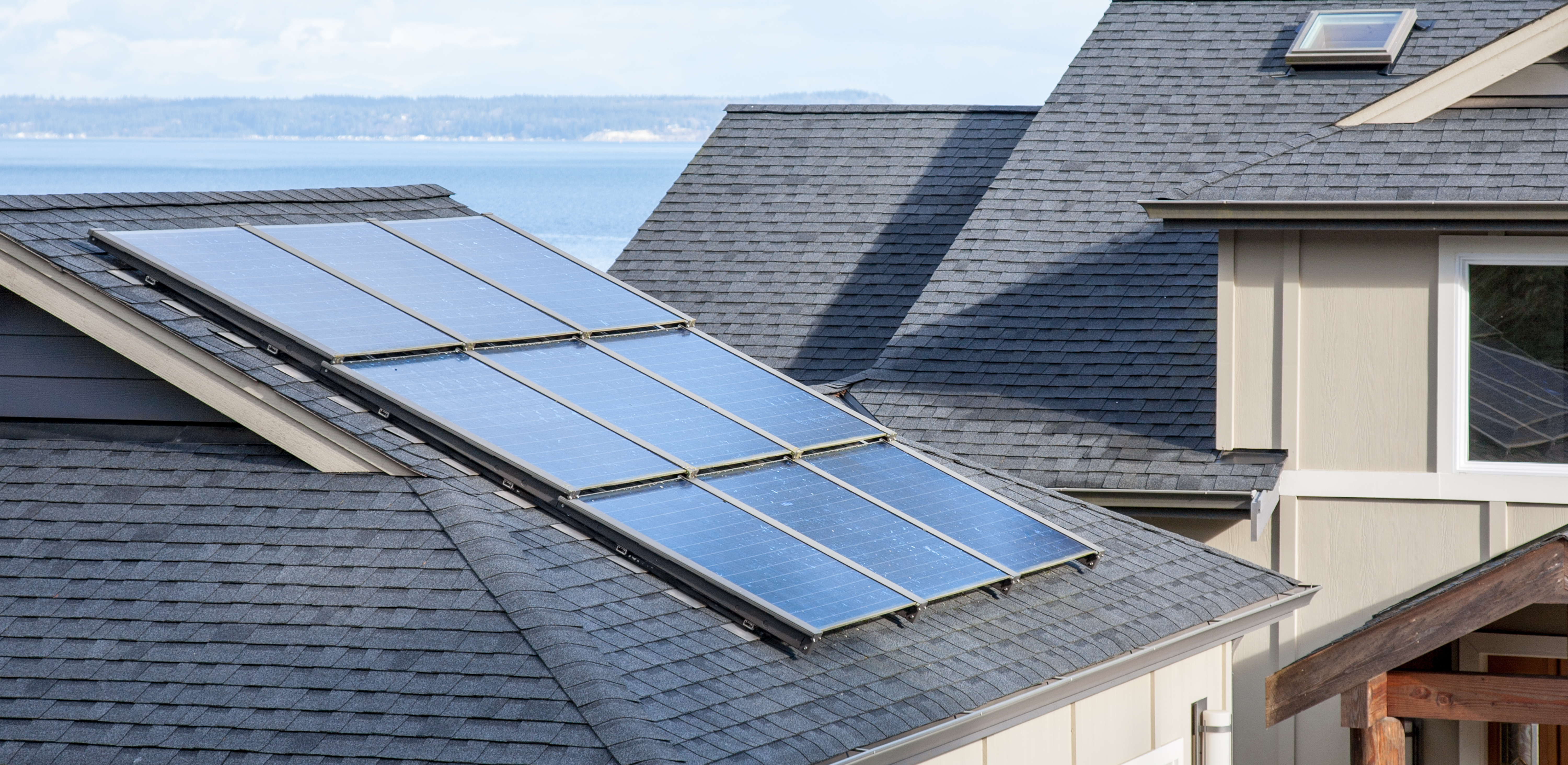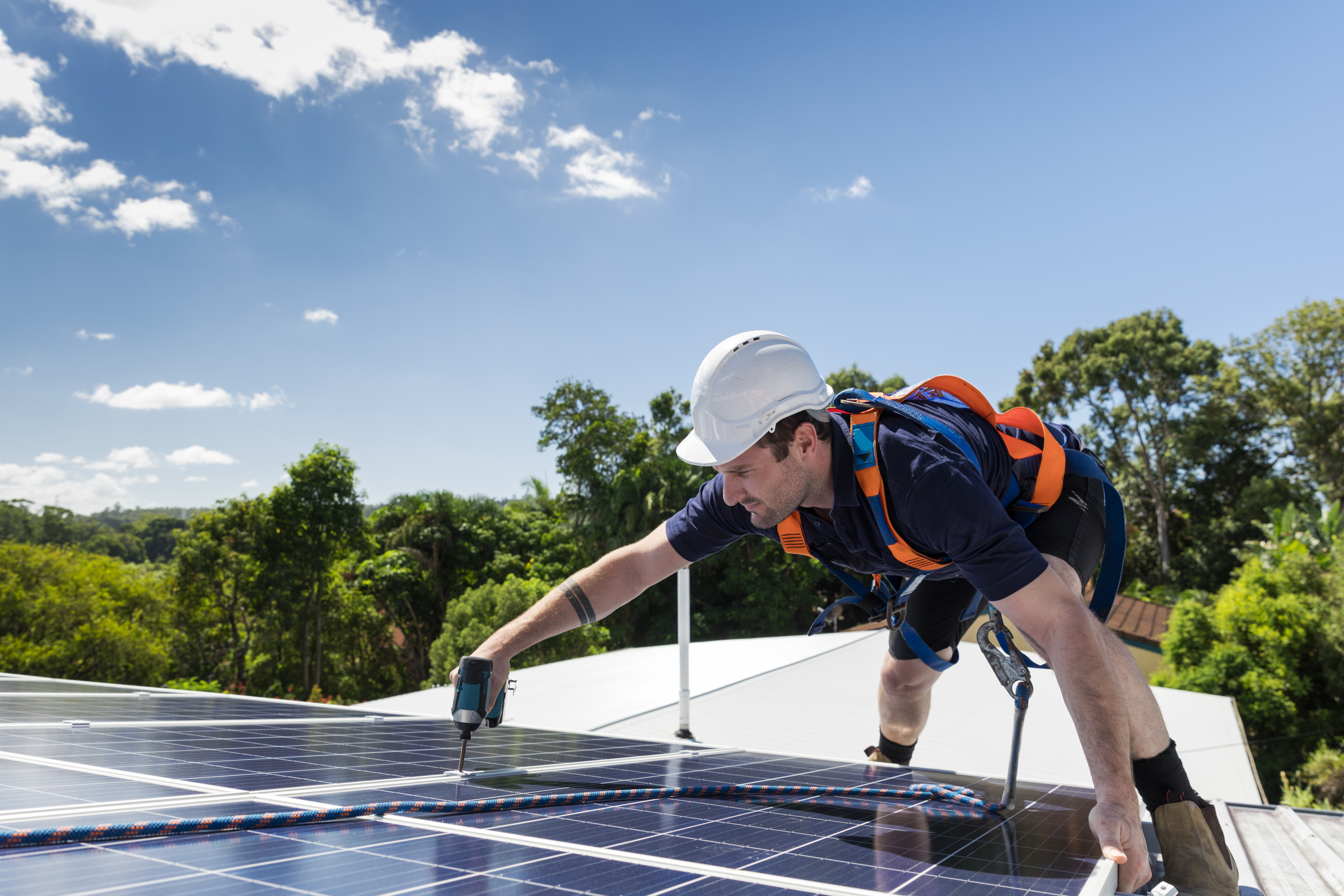Installing solar panels on your roof and a battery storage system on your land involves electrical and construction work at your property. This means your local government and utility company will need to ensure the installation complies with electrical and building codes, as well as any local safety standards, before you can turn it on. Here’s a look at what permits you need and how to secure them.
What permissions do I need?
There are up to three permits that homeowners might need prior to installing rooftop solar panels and a battery, according to Vincent Curcie, Chief Executive Officer of Orange County Solar. Every homeowner must obtain a building permit, he says. Depending on where you live, you might also need an electrical permit and sign-off from your local fire department.
While those are the most common permits, you may also need U.S. Coast Guard sign-off if you live near water, or approvals from a Homeowners Association (HOA) if you fall within their catchment area, Curcie explains. In addition to the aforementioned permits, every homeowner must notify their utility company and wait for inspection and approval before turning the solar system on.
When do I need to secure these permits?
Building, electrical, and fire safety permits will be required before construction of your system can begin. This means the relevant authorities will need to see the designs and specifications of your proposed solar and storage installation. Additionally, approvals from the HOA or Coast Guard must also come in before installation can start.
Soon after your system has been installed, a city inspector will come out to inspect it, says Curcie. As long as no corrections are needed, the inspector will give their sign-off on a permit. Your utility company will then need to be contacted to request permission to connect the system to the local distribution grid. With final utility approval in place, you can turn your system on.
How do I obtain these permits?
Normally, the solar and battery installer will handle all of the permitting and utility inspection process for you, says Curcie. Installers have extensive experience in acquiring proper permitting and should know the most efficient way to go about it. This ensures that the process is managed as quickly and easily as possible for the homeowner.
How much do permits cost?
Though costs will vary between states and localities, permitting costs for most residential solar panel installations are typically no more than a couple hundred dollars. Also, some states have regulations that cap what governments can charge. For example, California caps residential permitting at $450 and Colorado at $500. Most of the time you won’t even see these costs, as your installer will include them in their pricing.
How long does it take to secure these permits?
The permit timeline depends on how many permits are needed and where you’re based, according to Curcie. In some areas, permitting can be completed online, with a permit issued in as little as an hour. In other areas, permit approvals can take as long as two months or more, he explains. And if you need to apply to a Homeowners Association, that can add about another month.
“Depending on your jurisdiction, this means that permitting can be anywhere from as little as a week or two, to as long as two to three months before you’re ready to begin installation,” says Curcie. Once installation is complete, utility approval may then take anywhere from one business day to 30 business days, depending on the company and the scope of your system. Approval times will vary depending on whether you’re only installing solar or accompanying your solar panels with a battery.
“For solar only, we tell customers that we can have their project completed in roughly 60 days,” says Curcie. “If they’re installing solar with a battery, we generally say 60 to 90 days depending on the utility and jurisdiction and if they’re in a Homeowners Association.”
Is there anything I can do to speed up the process?
The best way to ensure the permitting process runs as quickly and smoothly as possible is to work closely with your installer to make sure they’re staying on top of the process. If you are with a Homeowners Association, you can also accelerate the process by submitting for Homeowners Association approval at the same time as building department approvals. That could save you as much as 30 days, says Curcie.
Do permits have an expiry date?
Yes, permits typically expire about two to three months after they are issued, Curcie says. Though in some states this is longer. In California, for example, permits last for as long as 6-months. This means you have a six-month window to fully install your project after you receive permit approval. Fortunately, you can usually apply for an extension to your permits if you don't manage to install your solar and battery system in time.
How long does the installation process take?
Installation is very quick, says Curcie. Typically between one and three days, depending on the size and scope of the system.
Do I need to apply for another permit if I add more solar panels or a battery to my system?
Yes, in some states such as California, you will have to apply for a permit even if you’re only adding one more solar panel to your system or if you’re connecting it to a battery, says Curcie. This means that during the initial design phase, it’s important to consider whether or not you will likely want to extend the size of your solar system in the future or add a battery.
“If you future proof, the costs of your system can go down dramatically, because there are shared components between a battery and your solar panels, such as the inverter,” Curcie explains. Therefore if you think you might want to add a battery to your rooftop solar system in the future, it’s important to let your installer know, so that they can plan accordingly.
Working with a trusted installer will ensure you secure all the permits you need for your system as quickly and easily as possible.
Looking to make the solar switch? Talk with your local Panasonic installer and get all your questions with a free quote.






